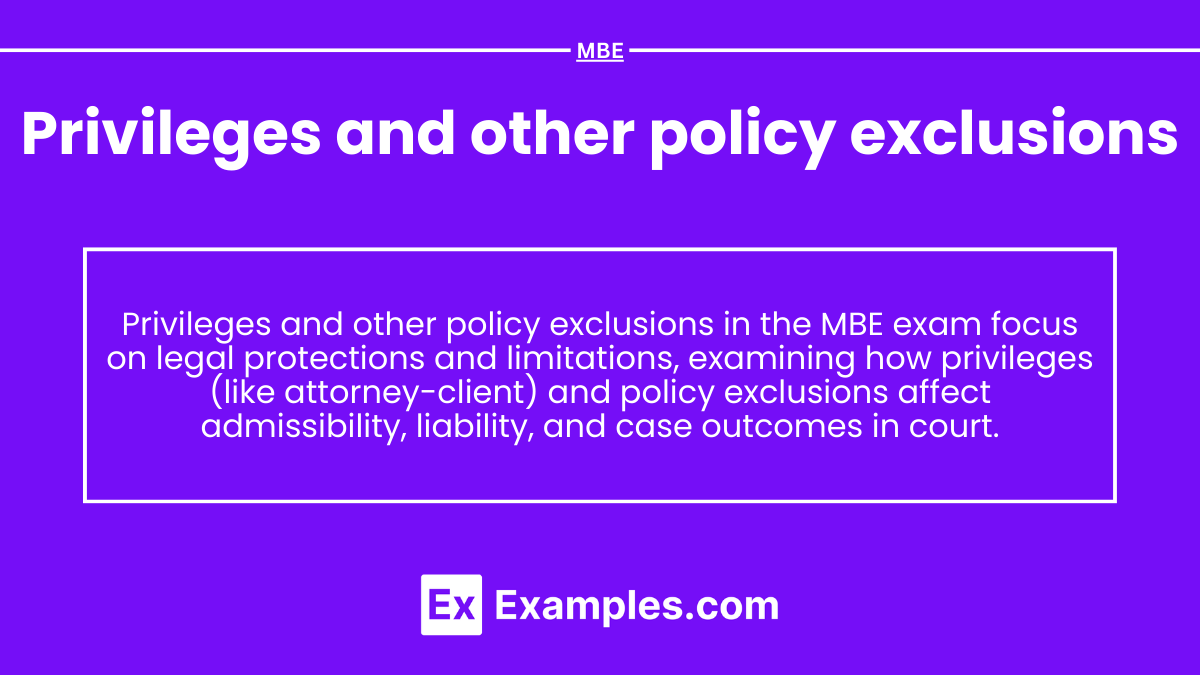In the MBE exam, understanding “Privileges and Other Policy Exclusions” is vital for identifying when relevant evidence is excluded due to confidentiality or social policy. Key areas include attorney-client, doctor-patient, and spousal privileges, along with policy exclusions like subsequent remedial measures and settlement offers. Mastery here is crucial for MBE success.
Learning Objective
Study “Privileges and Other Policy Exclusions” for the MBE by understanding the rules that protect specific relationships and encourage behaviors through evidence exclusion. Learn how privileges—such as attorney-client, doctor-patient, and spousal—limit admissibility, and explore policy exclusions for evidence like subsequent remedial measures, offers to settle, and insurance coverage. Recognize the rationale behind these protections, including their application and waiver conditions. Apply this knowledge in MBE practice questions to assess evidence admissibility accurately and understand the societal values underlying each exclusion.
Definition of Privilege
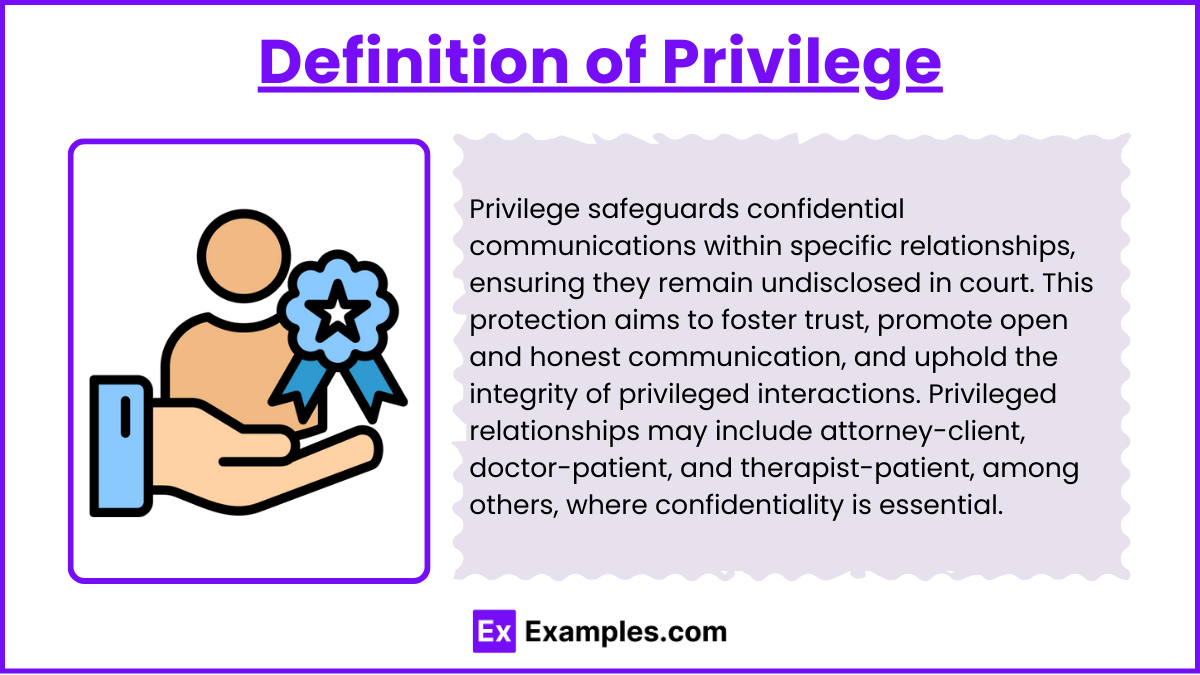
Privilege safeguards confidential communications within specific relationships, ensuring they remain undisclosed in court. This protection aims to foster trust, promote open and honest communication, and uphold the integrity of privileged interactions. Privileged relationships may include attorney-client, doctor-patient, and therapist-patient, among others, where confidentiality is essential.
Types of Privileged Relationships
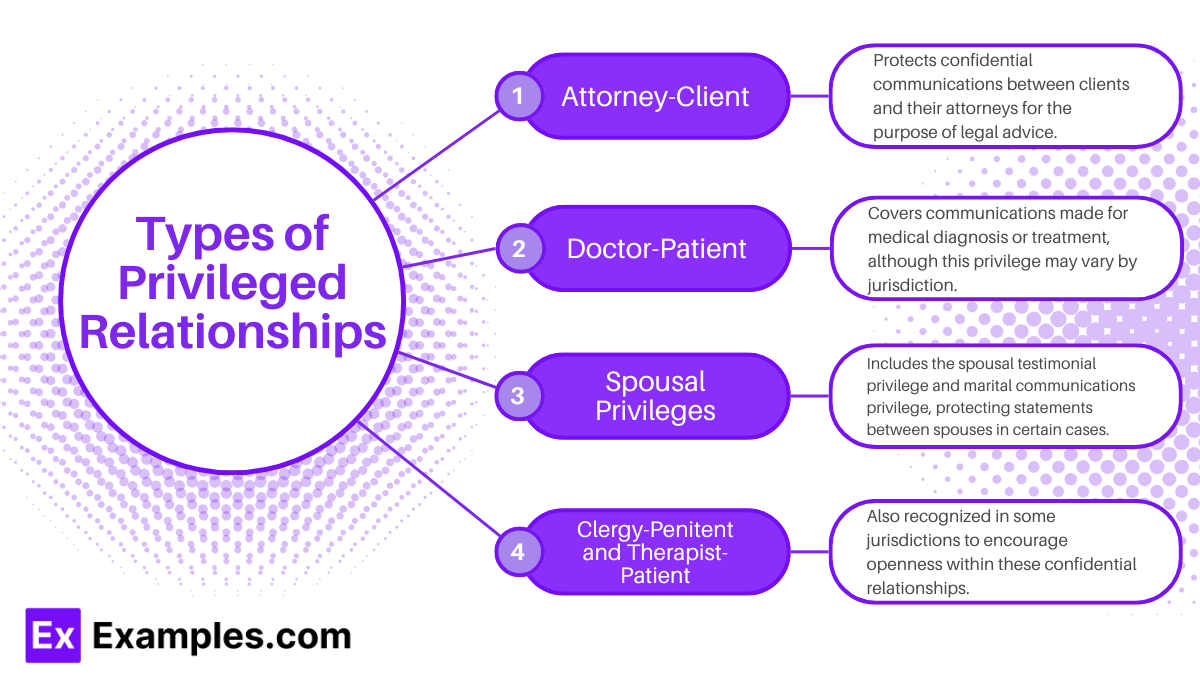
- Attorney-Client: Protects confidential communications between clients and their attorneys for the purpose of legal advice.
- Doctor-Patient: Covers communications made for medical diagnosis or treatment, although this privilege may vary by jurisdiction.
- Spousal Privileges: Includes the spousal testimonial privilege and marital communications privilege, protecting statements between spouses in certain cases.
- Clergy-Penitent and Therapist-Patient: Also recognized in some jurisdictions to encourage openness within these confidential relationships.
Policy Exclusions to Encourage Beneficial Conduct
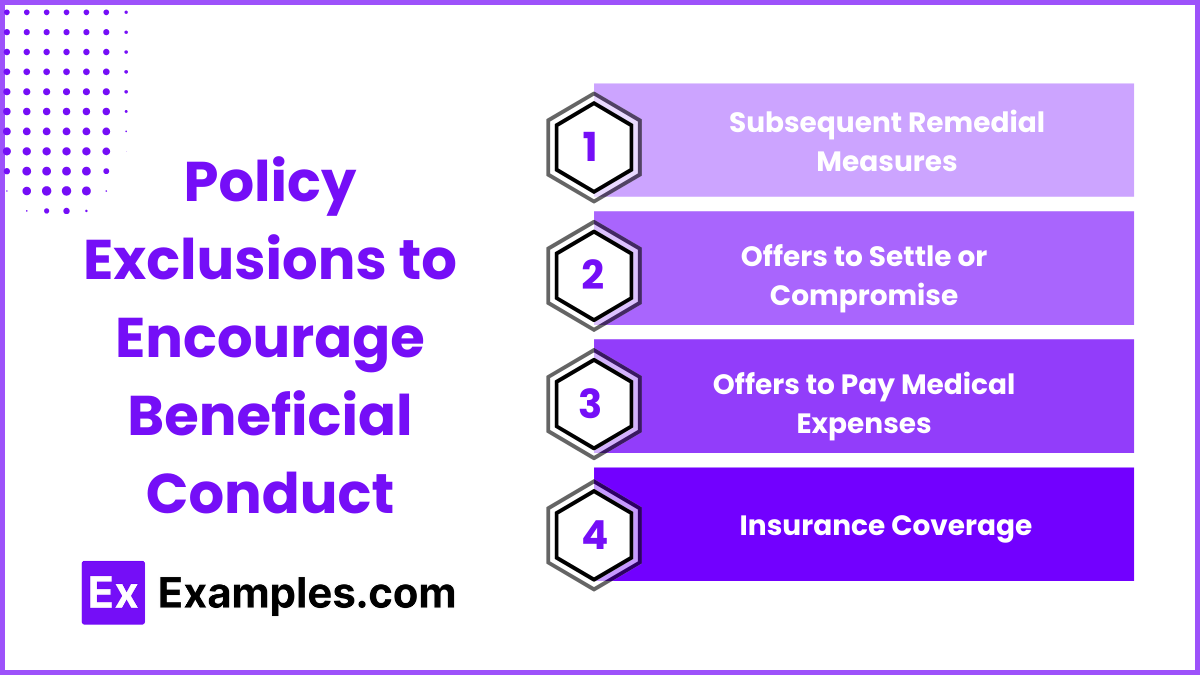
- Subsequent Remedial Measures
- Evidence of actions taken to repair or prevent harm after an incident is generally excluded to encourage safety improvements, unless it’s used to prove ownership or control.
- Offers to Settle or Compromise
- Statements made during settlement negotiations are excluded to promote open negotiation. Admissions made during these negotiations are also protected.
- Offers to Pay Medical Expenses
- Offers to pay medical or similar expenses are excluded from evidence to encourage acts of generosity without fear of admission in court. However, related admissions of fact may be admissible.
- Insurance Coverage
- Evidence that a party is insured is excluded to prevent bias, although it may be introduced when relevant to ownership or control of the insured property.
Waiver and Limitations on Privileges
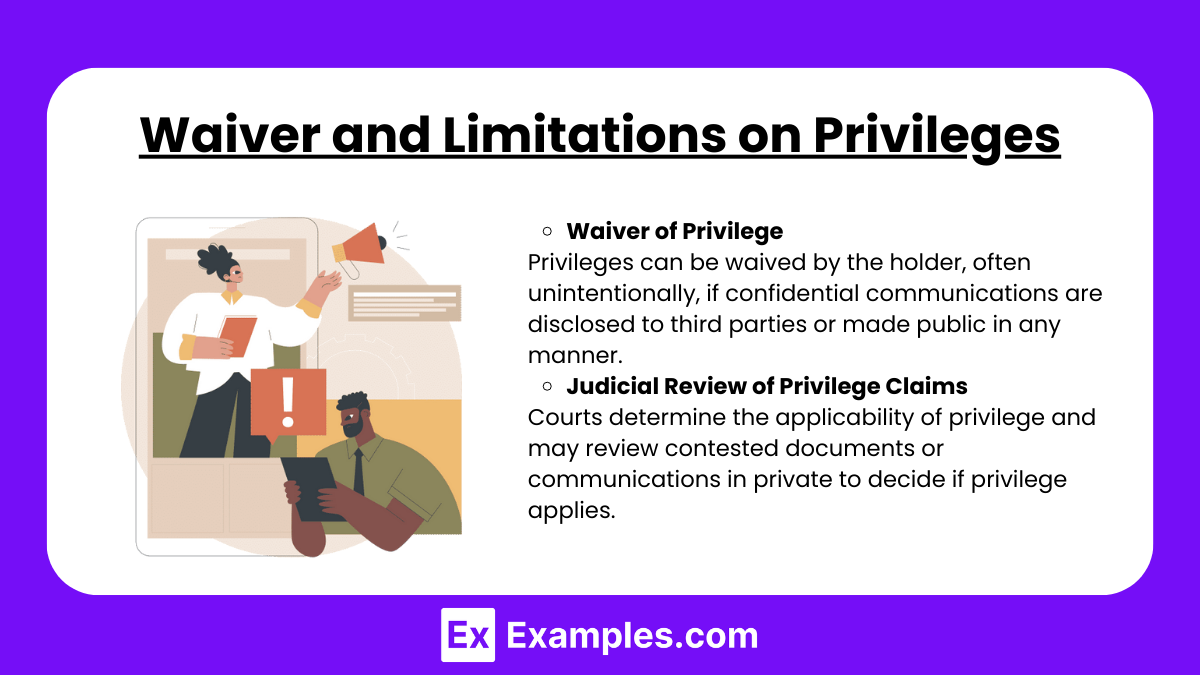
- Waiver of Privilege
- Privileges can be waived by the holder, often unintentionally, if confidential communications are disclosed to third parties or made public in any manner.
- Judicial Review of Privilege Claims
- Courts determine the applicability of privilege and may review contested documents or communications in private to decide if privilege applies.
Examples
Example 1
A client accidentally discusses legal advice with a friend in a public space. This disclosure may waive attorney-client privilege.
Example 2
A husband refuses to testify against his wife in a criminal case, invoking the spousal testimonial privilege, which he holds.
Example 3
During settlement negotiations, a party offers to settle for a certain amount, but this offer is excluded from evidence in trial proceedings.
Example 4
A therapist’s notes from a counseling session are subpoenaed, but the therapist asserts therapist-patient privilege to protect the client’s confidentiality.
Example 5
After an accident, a company repairs faulty equipment. This subsequent remedial measure is excluded to encourage proactive safety improvements.
Practice Questions
Question 1
During a lawsuit, a defendant admits fault during settlement negotiations. The plaintiff wants to introduce this statement in court. Which rule prevents its admission?
(A) Attorney-client privilege
(B) Work product doctrine
(C) Exclusion of offers to settle
(D) Subsequent remedial measures rule
Answer
(C) Exclusion of offers to settle.
Explanation
Statements made during settlement negotiations are excluded to promote frank discussions without fear of admission in court.
Question 2
A defendant in a criminal case does not want their spouse to testify against them. Which privilege would allow the spouse to refuse?
(A) Marital communications privilege
(B) Spousal testimonial privilege
(C) Doctor-patient privilege
(D) Attorney-client privilege
Answer
(B) Spousal testimonial privilege.
Explanation
The spousal testimonial privilege allows a spouse to refuse to testify against their partner in criminal cases, held by the testifying spouse.
Question 3
Evidence of a company’s repair of faulty equipment after an injury is being introduced by the plaintiff. The defendant objects. Under which rule might the judge exclude this evidence?
(A) Character evidence rule
(B) Subsequent remedial measures rule
(C) Work product doctrine
(D) Spousal privilege
Answer
(B) Subsequent remedial measures rule.
Explanation
The subsequent remedial measures rule excludes evidence of repairs made after an incident to encourage companies to make safety improvements.

